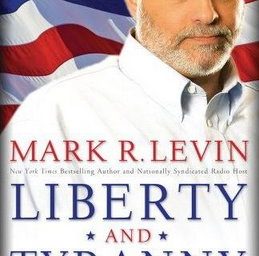Supreme Court Makes It Harder For States To Keep Fines Paid By Exonerated Defendants
The Supreme Court made it harder for states to keep fines and other payments in cases where defendants are exonerated.
In a decision issued yesterday, the Supreme Court struck down a Colorado law that imposed a high burden on defendants who had seen their convictions overturned from recovering fines and other monies they had been required to pay as part of their conviction:
WASHINGTON — The Supreme Court on Wednesday struck down a Colorado law that made it hard for criminal defendants whose convictions were overturned to get refunds of the fines and restitution they had been ordered to pay.
“Colorado may not presume a person, adjudged guilty of no crime, nonetheless guilty enough for monetary exactions,” Justice Ruth Bader Ginsburg wrote for the majority.
The vote was 7 to 1. Five justices joined Justice Ginsburg’s majority opinion, and Justice Samuel A. Alito Jr. concurred on other grounds. Justice Clarence Thomas dissented, and Justice Neil M. Gorsuch, who just joined the court, did not participate.
The state law required people cleared by the courts to file separate civil suits and prove their innocence with clear and convincing evidence to obtain reimbursement. Critics said the law was part of a national trend to extract fees and fines from people who find themselves enmeshed in the criminal justice system.
The law was challenged by Shannon Nelson and Louis Madden, who had been ordered to pay thousands of dollars in fees and restitution after they were convicted of sex offenses. After their convictions were overturned, they filed motions in their criminal cases seeking refunds of what they had paid.
The Colorado Supreme Court ruled against them, saying that their trial courts lacked authority to compensate them. Under Colorado’s law, the State Supreme Court said, they had to file new civil suits and meet a heightened burden of proof.
In dissent in the State Supreme Court, Justice William W. Hood III said the law “flips the presumption of innocence” by requiring defendants seeking refunds to prove their innocence by clear and convincing evidence.
“I struggle,” he wrote, “to see how we can sanction a system that makes money immediately due without providing for its return when reversible error occurs.”
Before the United States Supreme Court, Colorado maintained that the challenged law went further than the Constitution required. The state said it was free not only to impose onerous procedures, but also to enact a law making exonerated defendants forfeit the money entirely.
In dissent, Justice Thomas agreed. The money paid by Ms. Nelson and Mr. Madden, he wrote, “now belongs to the state and the victims under Colorado law.”
Justice Ginsburg disagreed. “The convictions pursuant to which the state took petitioners’ money were invalid,” she wrote, “hence the state had no legal right to retain their money.”
Colorado said the question in the case was similar to that of whether states must pay people for the time they spend in prison after their convictions are thrown out. Since such people need not be compensated, the state said, there is also no need to reimburse them for fines and fees.
“The comparison is inapt,” Justice Ginsburg wrote. “Nelson and Madden seek restoration of funds they paid to the state, not compensation for temporary deprivation of those funds.”
“Petitioners seek only their money back, not interest on those funds for the period the funds were in the state’s custody,” she wrote. “Just as the restoration of liberty on reversal of a conviction is not compensation, neither is the return of money taken by the state on account of the conviction.”
University of Texas Law Professor Steve Vladeck, writing at SCOTUSBlog summarizes the opinion:
Writing for a 6-1 majority (Justice Samuel Alito concurred in the judgment, but would have reached the same result by applying the more restrictive approach to due process in criminal cases articulated in Medina v. California.), Ginsburg opened by explaining why the traditional Mathews v. Eldridgedue process balancing test, rather than Medina, applies. Because “[t]hese cases … concern the continuing deprivation of property after a conviction has been reversed or vacated, with no prospect of reprosecution, … [and] no further criminal process is implicated, Mathews ‘provides the relevant inquiry.'”
Turning to Mathews‘ familiar factors, the court made quick work of explaining how “[a]ll three considerations weigh decisively against Colorado’s scheme.” First, the petitioners clearly have a significant interest “in regaining the money they paid to Colorado,” because “Colorado may not presume a person, adjudged guilty of no crime, nonetheless guilty enough for monetary exactions.”
Second, the court held, there is a clear risk of erroneous deprivation of the petitioners’ money, because the Exoneration Act puts the burden on them to prove their innocence by clear and convincing evidence, even though their convictions have been wiped off the books. If that weren’t problematic enough, Ginsburg continued, the Exoneration Act “provides no remedy at all for any assessments tied to invalid misdemeanor convictions,” and “when amounts a defendant seeks to recoup are not large [as in the petitioners’ cases], the cost of mounting a claim under the Exoneration Act and retaining a lawyer to pursue it would be prohibitive.”
(…)
In a provocative (and solo) dissent, Thomas suggested that the fundamental flaw in both the majority and concurring opinions was the assumption that defendants in cases like Nelson have a vested property interest in money they pay pursuant to criminal convictions that are vacated or reversed on appeal or through collateral post-conviction proceedings — an assumption Thomas rather vigorously disputed. Instead, Thomas argued, if such an interest comes from state law, then it must come from the Exoneration Act — which, on its terms, imposes conditions on the return of that money.
The more likely source of a substantive right to return of the funds, Thomas continued, was the due process clause of the Fourteenth Amendment — which, in Thomas’ long-held view, “confers no substantive rights.” Hence, Thomas’ perhaps surprising bottom line —“Colorado is therefore not required to provide any process at all for the return of that money.”
Fortunately for the petitioners, all of the other participating justices disagreed, even if they only assumed that criminal defendants do indeed have a right to the return of funds they pay pursuant to subsequently invalidated convictions, without explicitly identifying the source of such a right.
Given the fact that Colorado is already acting to change the law at issue in this case to change the burden placed on the formerly accused when they apply for refunds of fines or restitution, the immediate impact of this ruling is somewhat unclear. At most, it may end up providing some relief both to the defendants in this case and those in cases that may already be pending in other courts to whom the old law still applies. Beyond that, though, it doesn’t appear that the Court’s holding here will have very much practical impact outside Colorado. The interesting question, though, is one not addressed in any of the opinions in this case, namely what this holding might mean for civil asset forfeiture laws that exist at the Federal level in virtually every other state in the nation.
Civil asset forfeiture is the process by which the private property, which can include anything from personal property and cash to motor vehicles, are taken from people accused of crimes and seized by the state. Essentially, such laws allow the state or other charging authority to take property that it alleges is connected to a crime even in the most remote aspect. This can include not only property used to commit a crime, such as a car used as a getaway vehicle or computers used in a fraud case, but also property purchased from the proceeds of such crimes. Unlike a criminal conviction that requires proof of guilt beyond a reasonable doubt, the standard of proof required for the state to take property is typically much lower, sometimes as low as the preponderance of the evidence standard applicable to an ordinary civil case. The defenses available to a property owner in such a case are extremely limited under current law even if they are not the person accused of a crime, meaning that many innocent people have lost valuable property due solely to some tangential relationship with a person accused of a crime. Given the holding in this case, perhaps we’ve made some progress on the legal road toward giving property owners greater substantive rights to recover their property when they’ve been falsely accused or a crime, or when their property is taken even though they haven’t been accused of a crime at all. That will require future litigation, of course, and the outcome is far from certain but one can certainly be hopeful.
Here’s the opinion:
Nelson v. Colorado Opinion by Doug Mataconis on Scribd






There’s something fundamentally wrong with the “justice” system when you need the freaking Supreme Court to explain that when a conviction gets overturned, any money collected as part of that conviction ought to be refunded.
And something even more wrong when one of those justices disagrees!
Does Thomas have a judicial philosophy beyond “let’s hurt some people?”
Does he think the founding fathers were in favor of screwing over the wrongfully convicted? Is there a Federalist paper that I missed that said “the government’s powers to redress its wrongs are limited”? Is this secretly about the death penalty, where a wrongful conviction and execution can never be repaired?
@Gustopher:
I’d hypothesize that Thomas’s carte blanch deference to law enforcement is some PTSD-like result of having grown up black in the Jim Crow era south.
It is a sad indictment on Thomas as a human being that I knew he provided the lone dissent as soon as I saw “7 to 1.”
@Dan Hill: What if the state doesn’t have the money anymore – they went out and spent it ?
@Stormy Dragon: I think you are overlooking the more obvious explanation — he’s an asshole, thinks people who get their sentences overturned are doing so on technicalities, and that they deserve to be punished anyway.
Which just makes him a crappy judge in our system, where we don’t punish people because they deserve it, we punish people because the state can prove that they broke laws.
Who is he? We don’t know. Because Doug has been phoning it in for far to long.
Seriously James, can you not find someone capable of proofreading because this, combined with the last few posts is word salad.
Because the money looks better in the State Treasury than in the bank account of the defendant. Even Justice Thomas knows that. Duh!
@Gustopher:
No.
@Tyrell: Is that really the best ya got? Really?
Does Thomas’s “thinking” (and I use that term loosely) apply only to government entities? If I am billed incorrectly by a private company, and while contesting the bill I still pay it (to avoid late fees for example), does he truly believe I have no right to get that money back?
@Davebo:
1. That paragraph was immediately preceded by the information as to “he” was – making the identity clear to all competent readers.
2. It was part of an excerpt that Doug was quoting. In other words, he didn’t write it.
I would suggest you leave the blog as you are apparently incapable of the required level of basic reading comprehension required to participate in a written discussion among educated adults.
@SKI: I know. Cut me some slack, it was midnight and there may have been scotch involved.
@Gustopher:
Technical correction; carry on.